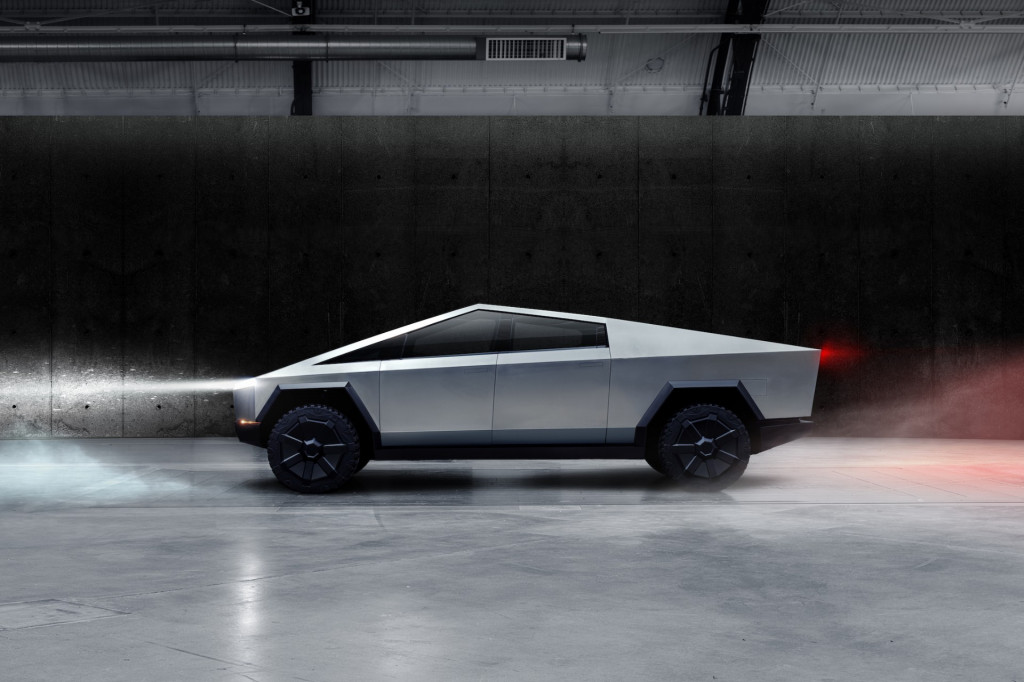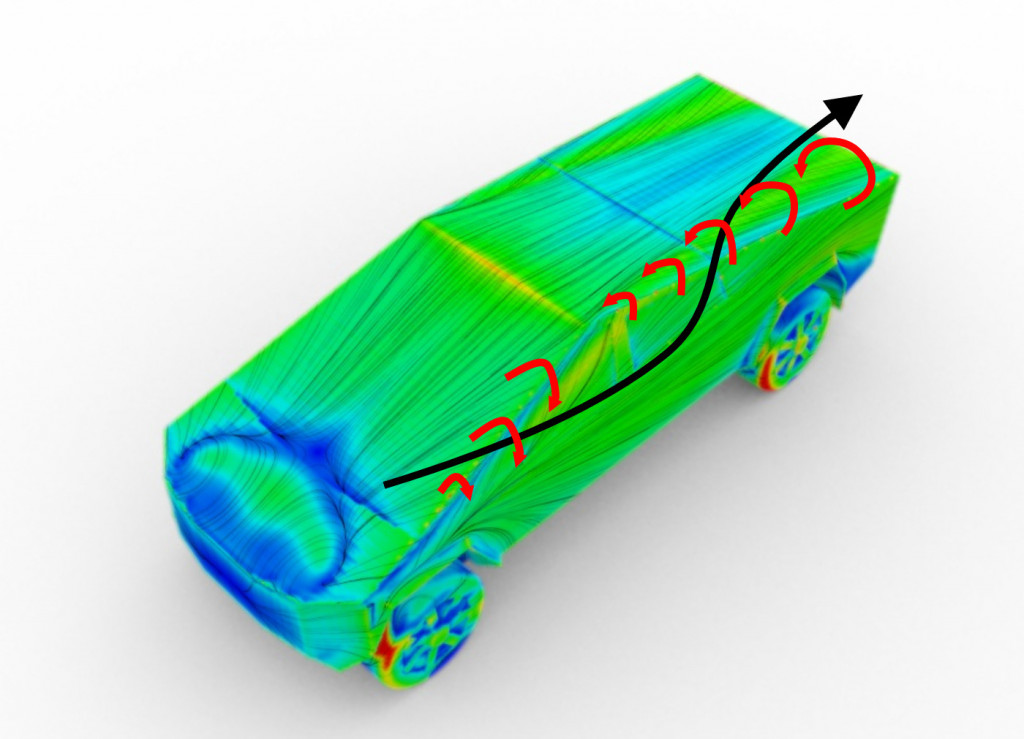Tesla claims a range of up to 500 miles for its upcoming Cybertruck electric pickup. And with the brand known for energy efficiency, would it even consider releasing a design that doesn’t make the aerodynamic cut?
It appears not, as a number of early assessments suggested that the Cybertruck isn’t nearly as blunt as it looks. And earlier this week CEO Elon Musk spoke up on the matter, saying that “with extreme effort” the Cybertruck might be able to hit a 0.30 coefficient of drag, which he described as “insane for a truck.”
With extreme effort, Cybertruck might hit a 0.30 drag coefficient, which would be insane for a truck. Requires tweaking many small details. https://t.co/IMLJbsInmq
— Elon Musk (@elonmusk) December 1, 2019
Musk followed up the statement by explaining that the overall shape is good for a low drag coefficient but, as others have pointed out, much matters on how you trip airflow at the edges and guide airflow around the wheels, as Musk described it, “like an invisible sculpture.”
Overall shape is good for low drag coefficient. Matters a lot exactly how you trip airflow at edges & guide air around wheels, like an invisible sculpture.
— Elon Musk (@elonmusk) December 1, 2019
The Model S and Model X both post 0.24, while the Model 3 does slightly better at 0.23. But at this time the 2019 Ram 1500 is at the front of the pickup pack, boasting a Cd of up to 0.357, and the 2019 Chevy Silverado achieves a 0.38 Cd.

Tesla Cybertruck prototype - Nov. 2019
To truly compare the aerodynamic resistance of vehicles, you need to multiply the Cd by the frontal area. According to MotorTrend, the Cybertruck is 230.9 inches long and has a wheelbase of 149.9 inches. Height has been estimated at about 75 inches and width about 80 inches—without mirrors.

Cybertruck aero - AirShaper
The Cybertruck’s efficiency will depend on details like mirrors, seams, trims, and wheel wells, and how they’re baked into the design on its way to production. Last month aerodynamics specialist Wouter Remmerie uploaded a 3D model of the Cybertruck into his AirShaper software, to release what he called a “quick and dirty” analysis of the design, arriving at a 0.48 Cd. He noted that there is “quite a good pressure recovery” in the design, with airflow pushing down (and forward) on the rear window and counteracting some of the resistance in front.
Another video (below) posted to YouTube shows an up close look—again estimated—at how air might flow around the Cybertruck. It’s worth watching just to understand how much of an effect seemingly small details can have on how much power it takes to speed along.
